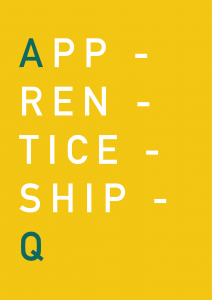WSP – a new degree apprenticeship programme (includes academic, technical and competency qualifications)

By Nick Davy, Arti Saraswat (AOC)
Insert Excerpt
Specialist engineering professional services company operating in markets throughout the world, with 500 offices in 40 countries. Its major service areas are transportation and infrastructure, buildings, power and water, environment and sustainability, energy and advisory services. Employs over 40,000 people worldwide, circa 7,000 in the UK.
Its Leeds office organize two training programmes: (a) Engineering Apprenticeship programme from English QCF Level 3 (technician) to Level 6 (Bachelors) – 5 years and (b) a fast track graduate training programme for those with relevant degrees – 3 years. They are separate programmes with different curricular and support systems, although in both cases mentors are utilised. The advanced or level 3 apprenticeship includes a level 3 qualification in civil engineering, building services engineering, rail design, surveying or business administration over a one to two year period with a mixture of workplace assessed learning and classroom sessions. The degree apprenticeship can include a BEng or BSc in either building services, civil engineering, project management, quantity surveying or rail engineering on either a block or day release basis, or a Level 4 qualification over two years. A competency qualification is also included to level five. They collaborate with Leeds College of Building for the apprenticeship programme.
The apprenticeship programmes overseen by a yearly meeting with the relevant training provider and a more frequent Technical Apprenticeship Consortium meeting that includes training providers and several companies and organizations that recruit engineering/construction apprentices. These meetings cover strategic, developmental and operational issues related to the programmes.
The Institute of Civil Engineers (ICE) is the key professional body providing advice on curricular issues and professional accreditation.
In the UK the Engineering Council has responsibility to grant licenses to professional engineering institutions such as ICE, allowing them to assess candidates for inclusion on the national register of professional engineers and technicians. They can also be licensed to accredit academic programmes and professional development schemes such as national apprenticeship standards documents.
Processes include (a) Strong recruitment and selection process. Initial screening by the Provider, and then an assessment centre organised by the company (b) Clear employment contract for the apprentice and training plan with qualification aims and learning support. (c) Trained Mentors and WBL assessors crucial to success of apprenticeship programme and graduate management scheme. (d) Regular 6 monthly formal meetings between company, apprentice and provider to ascertain progress (d) Strong strategic links and liaison between the training provider and companies in this occupational sector.
Quality assured by the training provider (assessment, qualifications), monitoring work based progress – by the trained mentor, and the organization of the programme through collaboration between the provider and company. In effect, quality assurance is ‘delegated’ to the organization that has the appropriate experience and expertise.
The development of professional competencies assessed through England’s system of National Vocational Qualifications, competency-based qualifications that assess performance against appropriate national occupational standards.
Formal feedback occurs through the six monthly review meetings.
- Mentoring viewed highly within company, and ‘accreditation’ leads to a rewards bonus.
- Mentoring culture reinforces overall culture of company – its ethics and values. Seeking to develop well rounded individuals and good team players.
No limiting factors identified.
Involvement in Companies/Providers consortium helps employers to lead the development of the programme and facilitates cross fertilization of ideas, processes in a ‘non-competitive arena’.
Company’s full commitment to learning means it is open to innovative and new ideas from apprentices/learners experiencing up-to-date knowledge on the programmes.



